8 Key Differences: Digital Marketing Vs Social Media Marketing
Digital marketing vs social media marketing compares broader online strategies and the specific use of social platforms to engage and interact with targeted audiences.
Digital marketing encompasses various online tactics, including social media, to promote businesses, products, or services. On the other hand, social media marketing leverages platforms like Facebook, Instagram, and Twitter to engage with audiences, build communities, and create brand awareness.
While digital marketing casts a broader net with various channels and objectives, social media marketing fosters interaction, generates conversations, and cultivates a brand’s online identity within social platforms. Businesses often succeed by integrating both approaches to maximize their online presence and engage with audiences effectively.
Difference Table Between Digital Marketing Vs Social Media Marketing
| Aspect | Digital Marketing | Social Media Marketing |
| Scope | Encompasses all online marketing efforts, including social media. | Focuses specifically on marketing efforts within social media platforms. |
| Channels | Involves various online channels like email, websites, search engines, and more. | Centers on social platforms such as Facebook, Instagram, Twitter, etc. |
| Audience Reach | Targets a broader online audience beyond social media users. | Targets users within specific social platforms. |
| Interaction | Offers diverse interaction methods like email, ads, content, etc. | Relies heavily on engagement, comments, likes, and shares. |
| Content Types | Involves a range of content forms, not limited to social content. | Focuses on content suited for social platforms, like visuals and short posts. |
| Goals | Aims at various objectives, including sales, brand awareness, lead generation, etc. | Often emphasizes brand engagement, community building, and interaction. |
| Targeting | Utilizes data-driven targeting methods across different channels. | Leverages social data for precise audience targeting. |
| Metrics | Measures broader metrics like website traffic, conversions, ROI. | Tracks engagement, reach, impressions, and platform-specific metrics. |
What Is Digital Marketing?

Digital marketing involves delivering and evaluating promotional messages across the customer journey using technological tools and the skills of marketing experts. It encompasses marketing efforts accessible through digital platforms such as the Internet, including paid social ads, social media posts, online videos, display ads, and search engine marketing.
Contrary to the perception of “traditional marketing” involving channels like magazines and billboards, digital marketing has become a pivotal force in today’s business landscape. It leverages the power of the web to engage audiences, build brand awareness, and drive conversions, offering a dynamic and measurable approach to reaching target audiences effectively.
Digital Marketing Process

Digital marketing comprises several interconnected stages that work harmoniously to create effective marketing campaigns. Let’s investigate these stages to understand how they combine for a successful digital marketing strategy.
Research Stage
Research is the foundational step in digital marketing. It involves gathering crucial information about the product or service, target market, and prospective customers. This data forms the basis for creating a focused advertising strategy. Key details include information about the company, product, intended audience, competitive landscape, and market trends. This phase serves as a compass, guiding the subsequent steps of the digital marketing process.
Creative Stage
Building upon the insights gained during the research phase, the marketing plan and campaign take shape in the creative stage. This is the ideation phase, where goals, objectives, and campaign strategies are developed. Whether the goal is maximum revenue or widespread consumer reach, the campaign’s branding and content strategy are carefully crafted. The creative stage aligns the campaign’s direction with the established objectives, ensuring a cohesive and impactful marketing effort.
Promotional Stage
The promotional stage is where the rubber meets the road. It’s the phase where digital marketing teams initiate the promotion of products or services through various online channels. These channels encompass a range of platforms, including search engines, display networks, email campaigns, affiliate programs, social media platforms, and e-commerce websites. Each channel is strategically chosen based on its potential to effectively reach and engage the target audience.
Analyzing Stage
The culmination of the digital marketing process occurs in the analyzing stage. Here, the performance of marketing and advertising campaigns is assessed and evaluated. Metrics such as engagement, click-through, conversion, and return on investment are analyzed. This data-driven approach provides valuable insights into the campaign’s strengths and weaknesses. The marketing team can refine future campaigns by learning from the analysis for improved results. Tools like Google Analytics play a pivotal role in tracking and measuring the effectiveness of campaigns.
Benefits Of Digital Marketing
- Global Reach: Digital marketing breaks down geographical barriers, enabling businesses to reach a global audience without physical limitations.
- Cost-Effective: Unlike traditional marketing methods, digital marketing offers cost-efficiency by allowing targeted campaigns and optimized spending.
- Measurable Results: Digital marketing provides real-time data and analytics, enabling businesses to track campaign performance accurately.
- Targeted Audience: Precise audience targeting is possible through demographics, interests, behaviors, and online activity, ensuring messages reach the right people.
- Personalization: Digital marketing enables personalized communication, tailoring messages to individual preferences for better engagement.
- High Engagement: Interactive content like videos, social media posts, and quizzes boost audience engagement and brand interaction.
- Quick Campaign Deployment: Digital campaigns can be launched swiftly, enabling rapid response to market trends and customer needs.
- Improved Conversion Rates: Targeted messaging and personalized experiences increase conversion rates and sales.
- Enhanced Customer Relationships: Direct social media and email interaction fosters stronger relationships and customer loyalty.
- Level Playing Field: Small businesses can compete with larger ones as digital marketing offers a platform where creativity and strategy matter more than size.
- Higher ROI: With its ability to measure and adjust campaigns in real-time, digital marketing often yields a higher return on investment than traditional methods.
Disadvantages
- High Competition: The digital landscape is crowded, making it challenging for businesses to stand out and capture audience attention amid intense competition.
- Technical Challenges: Digital marketing requires technical skills and knowledge of various tools, platforms, and algorithms, which can be overwhelming for some businesses.
- Constant Changes: Rapid changes in digital marketing trends, algorithms, and platforms require businesses to stay updated, adding complexity to their strategies.
- Data Privacy Concerns: Collecting and using customer data for targeting can raise privacy concerns and lead to potential legal issues if mishandled.
- Ad Blocking: Many users employ ad-blockers, reducing the visibility and effectiveness of display ads and impacting ad revenue.
- Dependency on Technology: Technical glitches, server issues, or internet outages can disrupt digital marketing efforts and impact the user experience.
- Negative Feedback Amplification: Negative reviews and feedback can spread quickly online, potentially damaging brand reputation if not managed promptly.
What Is Social Media Marketing?

Social media marketing involves using social media platforms to promote products, services, or brands and connect with audiences. It leverages the vast user base and interactive nature of platforms like Facebook, Instagram, Twitter, LinkedIn, and more.
Marketers create and share content, engage with users, run targeted ads, and analyze data to achieve marketing goals. Social media marketing allows businesses to build brand awareness, engage with customers, drive website traffic, generate leads, and even facilitate direct sales.
The ability to reach specific demographics, track performance, and foster a sense of community makes social media an essential component of modern marketing strategies.
Process Of Social Media Marketing

Social media marketing involves several key steps that contribute to the successful execution of a marketing campaign. Here’s a breakdown of the process:
- Conduct Market and Buyer Persona Research: Before diving into social media marketing, it’s crucial to understand your target audience. Conduct research to identify their demographics, interests, behavior, and preferences. This information will guide your content creation and targeting strategies.
- Choose the Social Media Sites: Based on your research, select the social media platforms that align with your target audience. Different platforms cater to different demographics and interests, so choose the ones that best reach your potential customers.
- Define Key Performance Indicators (KPIs) and Metrics: Set clear goals for your social media marketing efforts. Define specific KPIs to measure success, whether it’s increasing brand awareness, driving website traffic, or boosting sales. Metrics like engagement, click-through, and conversion rates will help you track your progress.
- Research Competitors: Analyze your competitors’ social media presence. Understand what type of content they’re sharing, how often they post, and the engagement they receive. This insight can inspire your content strategy and help you stand out.
- Create Unique and Engaging Content: Develop content that sets you apart from the competition. Create visually appealing and valuable content that resonates with your audience. This could include blog posts, videos, infographics, and more. Ensure your content is tailored to each platform’s format and audience expectations.
- Plan Posting Schedule: Consistency is key in social media marketing. Create a content calendar that outlines when and what you’ll be posting. A consistent posting schedule keeps your audience engaged and informed about your brand.
Benefits Of Social Media Marketing
- Increased Brand Awareness: Social media platforms provide a vast reach, allowing businesses to expose their brand to a wider audience.
- Enhanced Customer Engagement: Direct customer interaction through comments, likes, and messages fosters a stronger connection and builds brand loyalty.
- Targeted Advertising: Social media platforms offer advanced targeting options based on demographics, interests, and behaviors, ensuring marketing efforts reach the right audience.
- Cost-Effective: Compared to traditional advertising methods, social media marketing often offers a more budget-friendly option for businesses of all sizes.
- Real-time Feedback: Immediate customer feedback enables businesses to adjust strategies and offerings quickly, improving overall customer satisfaction.
- Increased Website Traffic: Effective social media campaigns can drive traffic to a business’s website, boosting its online presence and potential conversions.
- Improved SEO Rankings: Active social media profiles and engagement can positively influence a business’s search engine rankings.
- Access to Analytics: Social media platforms provide valuable insights into the performance of campaigns, helping businesses refine their strategies for better results.
Disadvantages
- Time-Consuming: Managing social media platforms requires regular updates, responses to comments, and content creation, which can be time-intensive.
- Overwhelming Content: The constant flow of content on social media can lead to oversaturation, making it challenging for your content to stand out.
- Negative Feedback: Negative comments or reviews can quickly spread on social media, potentially damaging your brand’s reputation.
- Dependency on Platforms: Changes in algorithms or policies of social media platforms can impact your reach and engagement.
- Limited Control: Your brand’s message might be interpreted differently than intended, as you have limited control over how users perceive your content.
- Return on Investment (ROI) Uncertainty: Measuring the direct impact of social media efforts on sales or conversions can be complex and uncertain.
Key Difference Between Digital Marketing VS Social Media Marketing

1. Scope
Digital marketing encompasses various online marketing efforts across various platforms and channels. It covers all aspects of online promotion, including email marketing, content marketing, search engine optimization (SEO), pay-per-click advertising (PPC), and more. Essentially, digital marketing encompasses the entire spectrum of online activities aimed at promoting and engaging with an audience.
On the other hand, social media marketing is a subset of digital marketing that specifically focuses on leveraging social media platforms for promotional activities. It involves creating and sharing content, advertisements, and campaigns on social platforms like Facebook, Instagram, Twitter, and LinkedIn. Social media marketing centers its efforts within social media networks to engage users and build brand presence.
2. Channels
To reach its consumers, digital marketing uses various digital mediums. These include email marketing campaigns, content published on websites and blogs, search engine advertising, display advertising, and more. The goal is to utilize multiple avenues to reach potential customers effectively.
As the name suggests, social media marketing is centered around social media platforms. It involves creating and curating content tailored to social networks like Facebook, Instagram, Twitter, and LinkedIn. The content varies based on the platform’s nature and user preferences, aiming to generate engagement and interactions.
3. Audience Reach
Social media is only one of several internet channels that may be used for digital marketing. It targets users across search engines, websites, email platforms, and more. This comprehensive approach aims to tap into a diverse online audience, regardless of their social media presence.
In contrast, social media marketing’s audience reach is concentrated within specific social platforms. It focuses on engaging active users on these platforms, building brand loyalty, and creating a community within those spaces. The audience targeting is refined based on the demographics and behaviors of users on each social media platform.
4. Interaction
In addition to social media platforms, digital marketing provides access to various communication channels. These methods include email marketing, display ads, content marketing, and search engine optimization. Brands can reach their audience through personalized email campaigns, informative blog posts, and eye-catching display advertisements. This broader spectrum of interaction avenues allows for a more comprehensive and tailored approach to engaging with potential customers.
On the other hand, social media marketing heavily relies on engagement within the confines of social media platforms. Interactions in this sphere occur through comments, likes, shares, and direct messages. Social media platforms foster community and dialogue, enabling brands to interact with their audience directly. This real-time engagement facilitates meaningful conversations and quick responses to inquiries, contributing to the overall brand image.
5. Content Types
The scope of digital marketing extends far beyond the material created expressly for social media. This can include long-form blog articles, informative infographics, comprehensive e-books, and in-depth video content. The diversity of content forms allows brands to cater to various preferences and engage audiences through different mediums.
Social media marketing, however, primarily focuses on creating content specifically suited for social platforms. Visual content, such as images and videos, tends to dominate this space due to its quick and engaging nature. Short posts accompanied by attention-grabbing visuals effectively capture the short attention spans of social media users.
6. Goals
Sales growth, brand promotion, new customer acquisition, and client loyalty are just a few of the objectives that may be accomplished with digital marketing. This comprehensive approach caters to various stages of the customer journey and aims to achieve tangible outcomes that contributing to a brand’s growth and success.
In contrast, social media marketing often emphasizes brand engagement, community building, and fostering interactions. While it may indirectly contribute to sales and lead generation, its primary goal is creating a loyal and engaged audience. Through meaningful interactions, brands aim to build trust, strengthen brand affinity, and cultivate a loyal customer base.
7. Targeting
Digital marketing employs data-driven targeting methods that span various online channels. Utilizing data analytics and insights, brands identify and segment their audience based on demographics, interests, behaviors, and past interactions. This comprehensive approach ensures that marketing efforts are directed toward individuals more likely to resonate with the message. Channels such as email marketing, search engine advertising, and display ads benefit from this data-driven approach.
On the other hand, social media marketing leverages the vast amount of social data available on platforms like Facebook, Instagram, and Twitter. These platforms offer detailed user information that enables brands to achieve precise audience targeting. Parameters such as age, location, interests, and even recent engagement patterns are considered to deliver content to the most relevant users. This granular targeting optimizes the chances of content being seen by those more likely to engage with it.
8. Metrics
Metrics that include a company’s digital properties are given special attention in digital marketing, such as website traffic, conversion rates, return on investment (ROI), and click-through rates (CTR), provide insights into the overall effectiveness of a campaign across different touchpoints. These metrics help brands understand the impact of their digital presence and the resulting customer actions.
Social media marketing, on the other hand, hones in on platform-specific metrics that revolve around engagement and reach. Metrics like likes, comments, shares, reach, and impressions gauge the level of interaction and visibility of content within the social sphere. These metrics provide insights into how well the content resonates with the audience, the virality of posts, and the growth of brand presence on social platforms.
Similarities Between Digital Marketing & Social Media Marketing
1. Online Presence: Both digital and social media marketing are conducted online, utilizing various digital channels and platforms to reach and engage with the target audience.
2. Audience Targeting: Both strategies identify and target specific audiences most likely to engage with the content. Data-driven insights are used to understand audience demographics, behaviors, and interests for effective targeting.
3. Content Strategy: Both digital marketing and social media marketing require a well-defined content strategy. Compelling and relevant content is created to engage the audience and convey the brand’s message effectively.
4. Engagement Focus: Both strategies emphasize creating meaningful interactions with the audience. While digital marketing aims to engage through various online channels, social media marketing builds engagement through likes, comments, shares, and other social interactions.
5. Brand Awareness: Both digital and social media marketing contribute to enhancing brand awareness. By consistently delivering targeted content, brands can increase their visibility and recognition among their target audience.
6. Data Analysis: Both strategies involve data analysis to measure campaigns’ effectiveness. Metrics such as reach, engagement, and conversions are tracked to assess the impact of marketing efforts and make informed decisions for optimization.
7. Goal-oriented: Whether through digital or social media channels, both strategies are designed to achieve specific goals. These goals range from increasing sales and driving website traffic to enhancing brand loyalty and community engagement.
8. Constant Adaptation: Both digital marketing and social media marketing require adaptability due to the evolving nature of online platforms and consumer behavior. Strategies need to be adjusted and refined to stay relevant and effective.
Frequently Asked Questions
What Is The Main Difference Between Digital Marketing Vs Social Media Marketing?
Digital marketing encompasses all online marketing efforts, including social media marketing. Social media marketing specifically focuses on marketing efforts within social media platforms.
Can Social Media Marketing Be Considered A Subset Of Digital Marketing?
Yes, social media marketing is a subset of digital marketing. While digital marketing covers a broader range of online channels and strategies, social media marketing exclusively promotes brands, products, or services within social platforms.
How Does The Audience Reach And Targeting Strategies Differ Between The Two?
Digital marketing targets a broader online audience beyond social media users. It utilizes data-driven targeting methods across different channels. On the other hand, social media marketing leverages social data for precise audience targeting within specific social platforms.
What Are The Primary Metrics Used To Measure Success In Digital And Social Media Marketing?
In digital marketing, broader metrics like website traffic, conversions, and return on investment (ROI) are measured. Social media marketing tracks engagement metrics such as likes, comments, shares, reach, impressions, and platform-specific metrics to evaluate performance.
How Do The Content Strategies Of Digital Marketing And Social Media Marketing Differ?
Digital marketing involves a range of content forms, not limited to social content. It includes various forms such as blogs, videos, emails, and website content. Social media marketing focuses on content for social platforms, such as visuals and short posts optimized for engagement.
Which Strategy Is More Suitable For Brand Engagement And Community Building?
Social media marketing is particularly suitable for brand engagement and community building. It emphasizes interactions through likes, comments, shares, and conversations within social platforms. It enables brands to create a sense of community and connect with their audience more personally.
Final Discussion
The distinction between digital and social media marketing lies in their scope and focus. Digital marketing encompasses various online strategies, including social media efforts. On the other hand, social media marketing specifically concentrates on leveraging social platforms for audience engagement.
While both approaches share similarities in audience targeting and content creation, their choice depends on the business’s goals and the platforms best suited to reach its target audience. Ultimately, a comprehensive digital marketing strategy may involve social media marketing as a crucial component, but businesses should align their choices with their specific objectives for optimal results in the ever-evolving digital landscape.
Read More Article:

















































